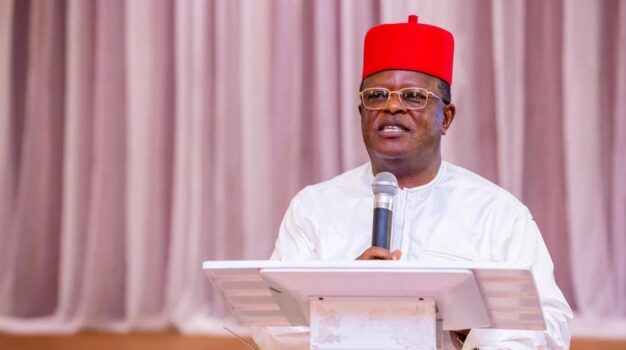 The Federal Government has announced it will proceed with the construction of the 700km Lagos-Calabar Coastal Highway, despite ongoing legal disputes initiated by those opposing the project.
The Federal Government has announced it will proceed with the construction of the 700km Lagos-Calabar Coastal Highway, despite ongoing legal disputes initiated by those opposing the project.
At a press briefing on Thursday in Abuja, Minister of Works David Umahi addressed concerns over the project’s procurement process that have led to lawsuits by landowners. Umahi affirmed that the highway, which will be constructed with concrete pavement, has met all required legal and procedural standards before work began.
The highway, costing N15.36 trillion, has faced public scrutiny since its construction commenced in March 2024. In May, Umahi revealed that 750 houses along the route were marked for demolition. Property owners criticized the government’s compensation offers as inadequate, demanding a review of the payments.
The road, which will connect Lagos to Cross River, traverses several coastal states including Ogun, Ondo, Delta, Edo, Bayelsa, Rivers, and Akwa Ibom, and is intended to boost connectivity and economic activity in Nigeria’s coastal region. The cost is estimated at N4 billion per kilometer, with contracts awarded for less than 100km at a total of N2.46 trillion.
Umahi, addressing reporters on the first anniversary of his tenure, reiterated the government’s commitment to the project, emphasizing adherence to legal and procedural requirements. He dismissed the legal challenges as attempts by some individuals to benefit unduly from the project and defended the procurement process as compliant with the Restrictive Procurement Act.
The minister also highlighted the completion of environmental and social impact assessments and confirmed that the project is included in the 2023 supplementary appropriation. Umahi criticized comparisons of the project’s cost to international standards, arguing that the project is appropriately priced.
Looking forward, Umahi announced that no new projects would be included in the 2025 budget unless directed by President Bola Tinubu, focusing instead on completing existing projects and addressing critical infrastructure needs.
To ensure value for money, Umahi detailed new initiatives including removing the Consumer Price Index from contracts and introducing inflow pricing. He also emphasized increased oversight with the introduction of a four-way project provision and community engagement for monitoring project quality.
Despite funding challenges, Umahi expressed optimism about the project’s future and introduced a Public-Private Partnership scheme for the second phase of the highway development. He assured that the government remains committed to creating a sustainable financing model for road projects.

Governor Fubara Denied Entry To Rivers Assembly Complex
NNPCL Denies Terminating Naira-Based Crude Oil Deal With Dangote Refinery
Senate Suspends Senator Natasha Akpoti-Uduaghan For Six Months
FG Launches New Treasury Management And Revenue Assurance Platform